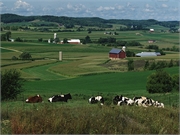- Could Your Grocery Store Meat Be Causing Recurring UTIs?
- Are You Making This Expensive Thermostat Error This Winter?
- Recognizing the Signs of Hypothyroidism
- 10 Strategies to Overcome Insomnia
- Could Artificial Sweeteners Be Aging the Brain Faster?
- Techniques for Soothing Your Nervous System
- Does the Water in Your House Smell Funny? Here’s Why
- Can a Daily Dose of Apple Cider Vinegar Actually Aid Weight Loss?
- 6 Health Beverages That Can Actually Spike Your Blood Sugar
- Treatment Options for Social Anxiety Disorder
The Doctor Gap: A Training Program for Country-Doc Wannabes

In the majestic Blue Ridge mountains of western North Carolina and eastern Tennessee, large percentages of rural residents struggle with poverty and limited access to health care.
In Avery County, N.C., you’ll find only one primary care physician for every 2,920 residents, according to the 2019 County Health Rankings, an initiative of the Robert Wood Johnson Foundation and University of Wisconsin’s Population Health Institute. In stark contrast, the national average is one primary care physician per 1,330 people.
In desperate need for doctors with a heart for rural medicine, MAHEC (the region’s health professions training center) teamed up with Watauga Medical Center in Boone, N.C., to build a family medicine residency program from scratch.
And that is why Dr. Molly Benedum, program director of the MAHEC Boone Rural Family Medicine Residency, carefully vetted candidates from a stack of 961 applicants last fall. She said she wanted people with a rural background or upbringing, knowing they would be more likely to want to settle in a rural area. She also looked for ties to North Carolina or Tennessee, as well as a commitment to people in rural, underserved markets.
Medical school graduates nationwide will find out where they have been accepted for residency training on Match Day, March 20.
“It takes a special person to want to come to the mountains of North Carolina and, hopefully, then stay in our area and serve in our communities,” Benedum said.
She’s noticed a common theme among family medicine applicants. Students describe “this desire to be like the town doctor,” doing volunteer work in the community, handling deliveries and procedures, and caring for patients of all ages, for example.
Those who are accepted into the family medicine residency program will train at the hospital in Boone and in the clinic where Benedum sees patients. The program is only accepting four residents to start. In subsequent years, there will be six spots available, Benedum said.
A three-year, $75,000 grant from the U.S. Health Resources and Services Administration’s (HRSA) Rural Residency Planning and Development Program (RRPD) will cover certain residency startup costs, such as faculty salary support and education. The grant is one of 27 that were given out last summer.
Erin Fraher, director of the Carolina Health Workforce Research Center at University of North Carolina at Chapel Hill, is involved in providing technical assistance to RRPD grantees. Because of the new HRSA initiative, she sees a lot of potential to ease rural disparities in access to care.
“To me, this is a shining beacon,” Fraher said.
Source: HealthDay
Copyright © 2026 HealthDay. All rights reserved.










